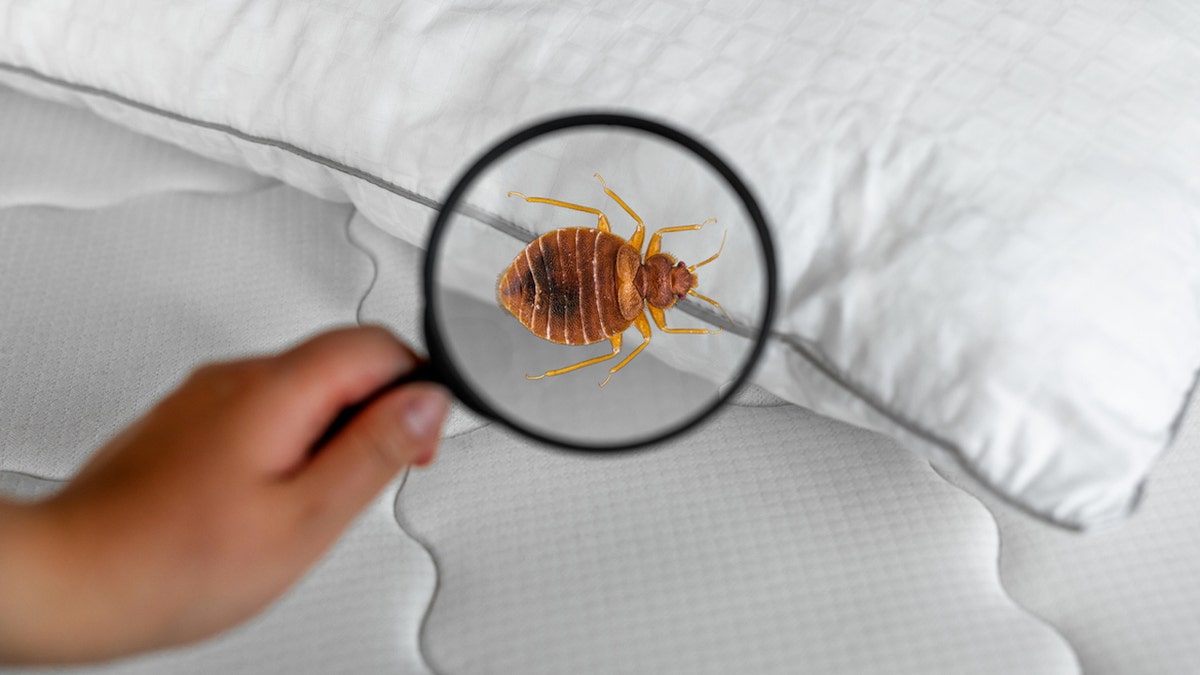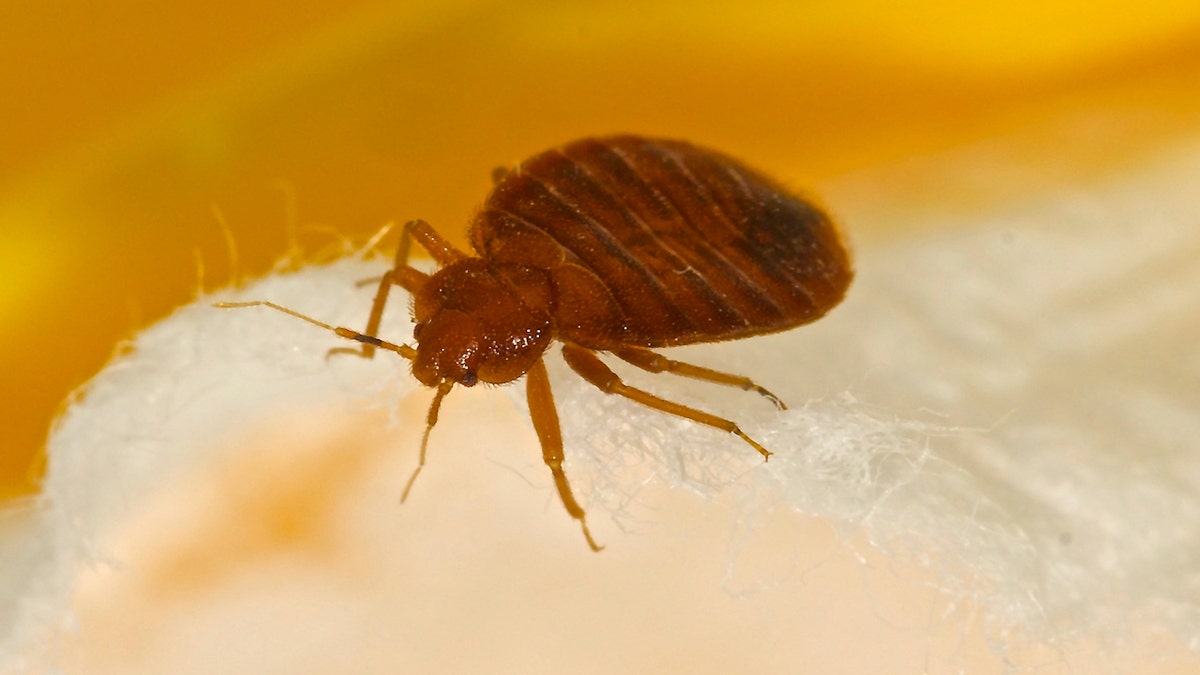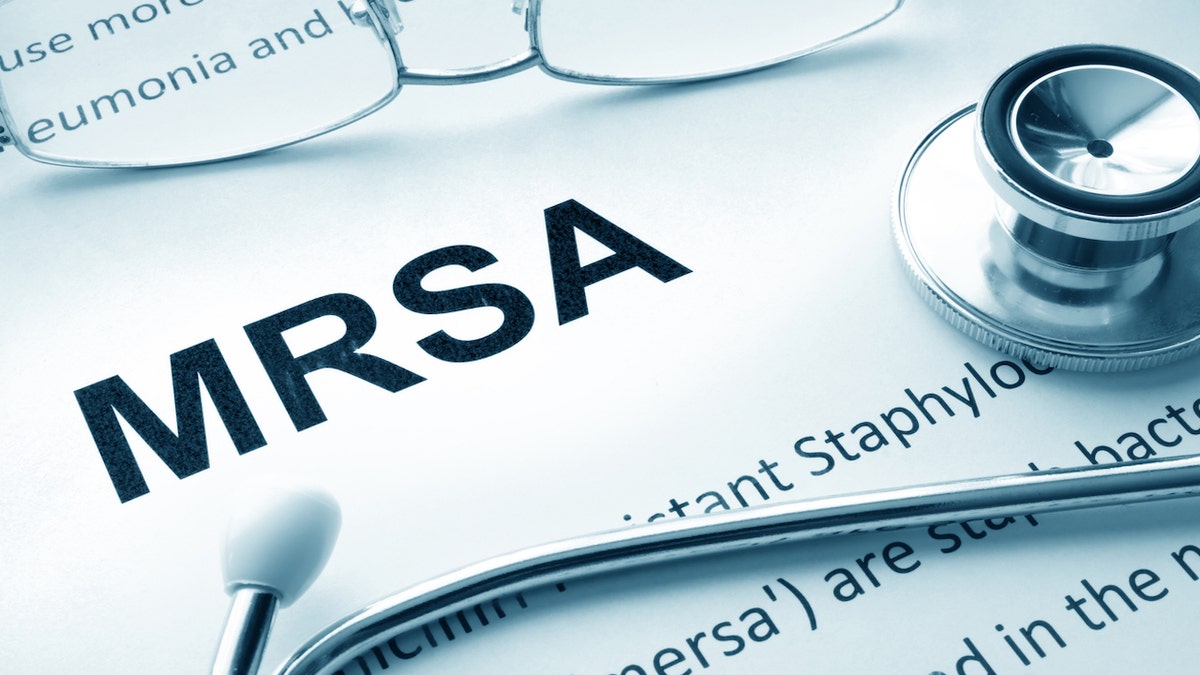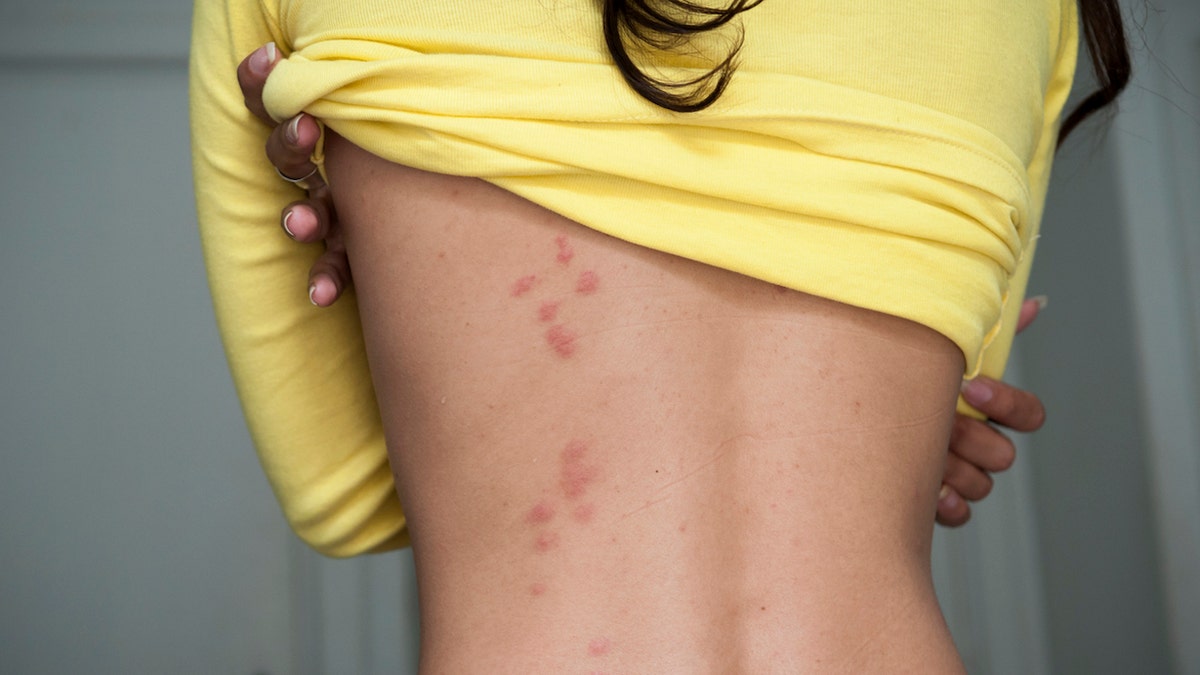Madonna alert after being hospitalized for infection
NYU Langone professor of medicine Dr. Marc Siegel explains pop superstar Madonna’s bacterial infection landing her in the hospital.
Bedbugs may be able to acquire and transmit methicillin-resistant Staphylococcus aureus (MRSA), according to a recent study published in the Journal of Infectious Diseases.
MRSA is a type of bacteria found on people’s skin that can cause serious infections. In some cases, it can lead to sepsis or even death, according to the Centers for Disease Control and Prevention (CDC).
"Our findings provide the first experimental support for the hypothesis that bedbugs may contribute to the transmission of MRSA in some settings," Jose E. Pietri, PhD, assistant professor of microbiology at the Sanford School of Medicine at the University of South Dakota, who took part in the research, told Fox News Digital.
AFTER BEDBUG INVASION AT HAWAII AIRPORT, WHAT TO KNOW AND HOW TO RECOGNIZE THE NASTY PESTS
MRSA can cause staph infections, which are challenging to treat due to their resistance to some antibiotics, according to health experts.
Staph infections often spread in health care facilities such as nursing facilities and hospitals, as well as schools and community facilities, they said.

Bedbugs may be able to acquire and transmit methicillin-resistant Staphylococcus aureus (MRSA), according to a recent study published in the Journal of Infectious Diseases. (iStock)
In an experimental study, the group of University of South Dakota researchers conducted three trials using sterile blood surrounded with a collagen membrane contaminated with MRSA at a concentration level that is typically present on human skin.
The researchers allowed the bedbugs to "blood feed" through these contaminated membranes. Then they analyzed the amount of viable MRSA internally and on the surface of the bedbugs over a seven-day period, according to the journal entry discussing the study.
In two of the three trials, MRSA remained viable on the external surface of the bedbugs for up to three days post-exposure.
In two of the three trials, MRSA remained viable on the external surface of the bedbugs for up to three days post-exposure.
In one of the trials, bacteria was detected for up to seven days and was replicated internally.
ANTIBIOTIC RESISTANCE IS ON THE RISE, DOCTOR WARNS: ‘THIS IS AN ENORMOUS PROBLEM’
Seven days later, the researchers looked to see if the bedbugs could transmit MRSA when blood-feeding.
In two of the three trials, the bacteria was transmitted to the uncontaminated membrane.

Several infectious disease experts told Fox News Digital that while the report is interesting, further studies are needed to confirm a link between bedbugs and MRSA outbreaks. (iStock)
"These results do not prove that bedbugs are relevant vectors of MRSA in nature," Pietri told Fox News Digital.
"Ultimately, additional clinical and epidemiological investigations aimed specifically at examining the relationship between bedbugs and MRSA infections are needed."
Several infectious disease experts told Fox News Digital that while the report is interesting, further studies are needed to confirm a link between bedbugs and MRSA outbreaks.

MRSA can cause staph infections, which are challenging to treat due to their resistance to some antibiotics. (iStock)
"The study was an experiment using artificial feeders, not people," noted Dr. Bruce Hirsch, an attending physician in infectious diseases at Northwell Health in Manhasset, New York, who was not part of the study.
"There have been previous associations of exposure to bedbugs to MRSA outbreaks, though very unusual," he added.
Best practices to prevent infection
The presence of MRSA is very common, Hirsch also told Fox News Digital.
"This germ can cause very serious infections, but usually just colonizes us without any problems," he said.
"Staph is common in the front of the nose, on skin and around our environment on bedsheets, clothes and nearby objects," he also said.
"Stay clean, but don’t go crazy."
There are measures people can take to counter potential MRSA infections, according to the doctor.
He recommends taking steps to stay as healthy as possible.
"Stay clean, but don’t go crazy — too much soap can dry out the skin and make us even more vulnerable to infections," Hirsch said.
Staph has a sweet tooth, he warned — so people with diabetes should keep their blood sugar well-controlled to reduce the risk of infection.

MRSA is a type of bacteria found on people’s skin that can cause serious infections, in some cases leading to sepsis or even death. (iStock)
"Keeping the immediate environment clean and fresh also helps reduce the burden of bedbugs," Hirsch added.
Dr. Aaron Glatt, the chief of infectious diseases and a hospital epidemiologist at Mount Sinai on Long Island, New York, was not part of the study but shared comment with Fox News Digital about the findings.
"This is an experimental study that just supports the potential for bedbugs to theoretically transmit MRSA from one person to another," he said.
"It does not demonstrate that this is actually occurring in people."
CLICK HERE TO GET THE FOX NEWS APP
"There’s certainly no evidence to suggest that this is a major method of MRSA transmission in human beings, but bedbugs are something that can be a nuisance in and of themselves, and infestation should be prevented as best as possible," Glatt added.
What to know about bedbugs
Bedbugs are "small, flat, parasitic insects that feed solely on the blood of people and animals while they sleep," the CDC stated on its website.
They are typically transported during travel via luggage, overnight bags or bedding.

One of the telltale signs of a bedbug infestation is bite marks on the face, neck, arms or other body parts after sleeping, according to the CDC. (iStock)
One of the telltale signs of a bedbug infestation is bite marks on the face, neck, arms or other body parts after sleeping, per the CDC.
The bite marks may appear slightly swollen and red, similar to a mosquito bite, and may be itchy and irritating.
CLICK HERE TO SIGN UP FOR OUR HEALTH NEWSLETTER
Other clues that these pests may be present are rust-colored blood spots on the bed (from the blood-filled fecal material the bugs excrete); a sweet, musty odor; and the presence of bedbugs or their exoskeletons found in the folds of the mattress and sheets.
The CDC recommends contacting a pest control specialist to check for bedbugs if any signs appear.








































